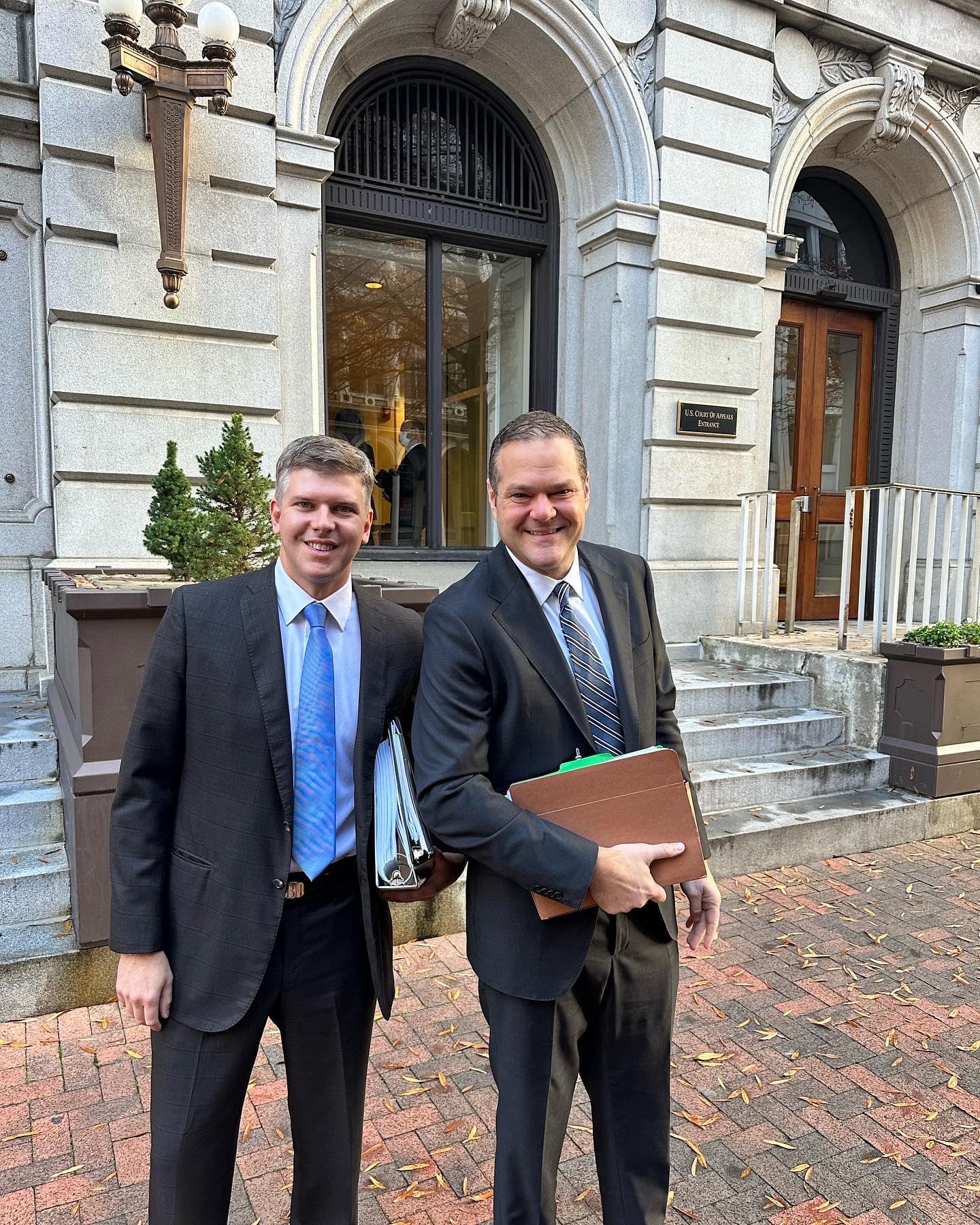And Who Decides the Facts
Navigating Court System a Complicated Journey
 One cold morning just before Christmas, James and I were making our way through an elaborate security checkpoint just steps away from the Virginia statehouse. We were entering the 4th Circuit Court of Appeals in Richmond to argue two separate cases in front of two panels of appellate judges. One case was being brought on behalf of a Myrtle Beach veterinarian whose Fourth Amendment right to be free from illegal arrest was violated, and the second case was brought on behalf of a Richland County high school student whose 14th Amendment right to bodily integrity was violated when she was sexually assaulted by a school resource officer. Given the local nature of our disputes, I thought about how and why we ended up in a queue outside the courthouse in Richmond.
One cold morning just before Christmas, James and I were making our way through an elaborate security checkpoint just steps away from the Virginia statehouse. We were entering the 4th Circuit Court of Appeals in Richmond to argue two separate cases in front of two panels of appellate judges. One case was being brought on behalf of a Myrtle Beach veterinarian whose Fourth Amendment right to be free from illegal arrest was violated, and the second case was brought on behalf of a Richland County high school student whose 14th Amendment right to bodily integrity was violated when she was sexually assaulted by a school resource officer. Given the local nature of our disputes, I thought about how and why we ended up in a queue outside the courthouse in Richmond.
The answer is somewhat convoluted, but it comes back to the question of who judges what? The first thing that any juror hears once they are sworn in is that the trial judge in the case will be the judge of the law, and the jurors will be the judge of the facts. That means the judge functions as a referee, deciding what evidence can be presented to the jury and what questions will be stricken from the record. However, the most important questions — such as which witnesses to believe and what actually happened in a dispute — are judged solely by the jurors.
In our state, we have three primary types of trial judges who hear a combination of civil and criminal cases (as opposed to our distinguished Family Court and Probate judges who hear specialized matters). Magistrate/municipal/city judges make up the first type of trial judges, and they have limited jurisdiction. These judges can hear criminal cases involving misdemeanors carrying a jail term of less than 30 days and civil cases where the value in dispute is less than $10,000 (typically thought of as “small claims court”).
Circuit court judges have jurisdiction to hear felony criminal cases and civil cases where the subject matter of the case exceeds $10,000. In our state, the party pressing the felony criminal charges is known as a solicitor (most states call these prosecutors district attorneys), who brings these charges on behalf of the state of South Carolina to enforce our state’s laws. Circuit judges are the backbone of our state trial court system. Circuit judges are elected by the South Carolina Legislature to seven-year terms. If a party believes that a circuit court judge has made an error of law impacting a jury’s verdict, that issue can be appealed to the South Carolina Court of Appeals and subsequently the South Carolina Supreme Court, which are both located in Columbia, South Carolina.
The federal equivalent to a South Carolina Circuit Court judge is a U.S. District Court judge, who serves as the backbone of the federal trial system. U.S. District Court judges hear federal criminal cases brought by prosecutors known as assistant U.S. attorneys, who press charges on behalf of the United States to enforce our nation’s federal laws. District court judges also hear civil cases involving questions of federal law (such as cases involving the violation of constitutional rights) and certain high-dollar disputes involving parties of multiple states. U.S. District Court judges are appointed directly by the president of the United States and must be confirmed by the U.S. Senate. Once confirmed, these judges have a lifetime appointment. Appeals from the U.S. District Court for the District of South Carolina are heard by the Fourth Circuit Court of Appeals, which hears all appeals coming from the district courts for South Carolina, North Carolina, Virginia, West Virginia, and Maryland — hence our road trip to defend the constitutional rights of our fellow citizens of South Carolina.
Despite the complexity and importance of the judiciary, the most important judge in the courtroom is always each individual member of the jury. Please keep that in mind the next time a jury duty summons arrives in the mail!